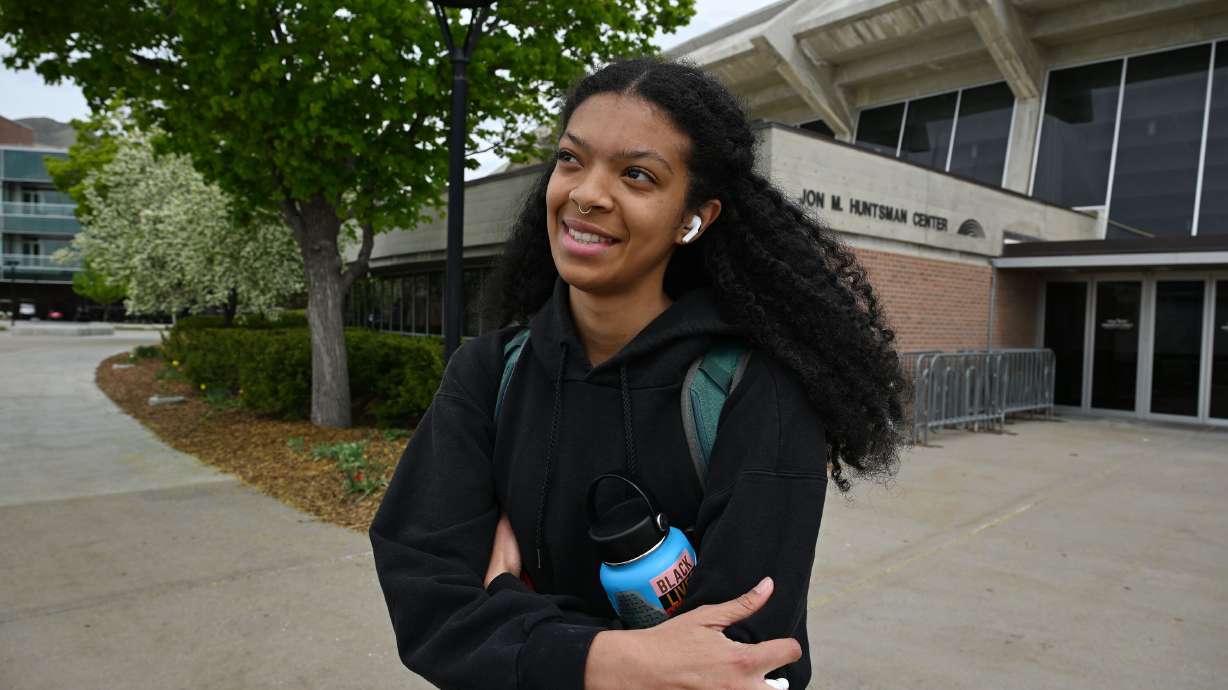Estimated read time: 4-5 minutes
- Student reaction to the University of Utah's decision to award college credits for prior learning and service is generally positive.
- Eligible students include military veterans, religious missionaries and humanitarian workers.
- The program allows up to 12 credits, starting fall 2025, with a $50 fee.
SALT LAKE CITY — Dom Tychsen is a midshipman in the University of Utah's Naval ROTC program. He also served a mission for The Church of Jesus Christ of Latter-day Saints, laboring in New Mexico and Brazil.
So Wednesday's announcement that the university would soon be awarding college credit hours to eligible students with prior learning and service experience was welcome news to Tychsen on multiple fronts.
"I'll always take free credits," the mechanical engineering student told the Deseret News, laughing. "If the (credit award) program helps me (satisfy) some classes, I'd totally apply for it."
Tychsen's wife and fellow University of Utah student, Sarah Tychsen, also served a full-time religious mission and is working toward an elementary education degree. She's already earned an associate's degree, "but if I could get some credits for my (elementary education bachelor's degree), that would be awesome."
On Wednesday, University of Utah leadership announced that it would soon offer college credit for "prior learning and service" for eligible students who have performed some sort of service in the global community.
Such prior learning and service credit criteria is both broad and open. It could include students who have served religious missions, military vets and students on active military duty, participants in programs such as the Peace Corps and AmeriCorps, or other forms of humanitarian and community service.
Starting in the fall 2025 semester, University of Utah students can receive up to 12 hours — the equivalent of one semester — for "what they have already learned and put into practice across the globe."
Consider the program a credit-earning nod to the value of prior learning experiences "as an invaluable benefit to the university's campus community."
University of Utah President Taylor Randall noted Wednesday that students acquire much from, say, serving a religious mission in a distant country or wearing the uniform of the armed forces.
"They learn leadership skills. They learn intercultural skills."
The "Prior Learning and Service" credits could be awarded in multiple forms — including general education credits or credits that apply specifically to a student's degree.
Related:
Academic credit, according to the university, will be awarded based on the type and duration of the student's experience and will be determined on a case-by-case basis, up to the equivalent of one semester of credits.
Students will pay a $50 fee for each portfolio-based petition for prior learning credit assessments.
Students who served at least 181 cumulative days of U.S. active-duty military service and were honorably discharged or are currently on active duty will also be eligible to receive four lower-division credit hours of basic training.
According to the university, students may test out, be given credit for military training, or demonstrate "sufficient knowledge of the course material gained through experience via portfolio-based assessment."
The University of Utah has more than 1,600 students with military connections, and there is — no surprise — a sizable community of students who have served religious missions.
Credit for 'experiential learning'
The university's Salt Lake City campus was unusually quiet Wednesday afternoon after news broke of the Prior Learning and Service credit award initiative.
It's days before graduation, and students are busy preparing for the spring 2025 final exam period. But those who took a quick break from their studies to discuss the new credit program were, like Dom and Sarah Tychsen, generally supportive.
"It sounds like an exciting program," said Nayra Green. "I definitely think that more students should have experiential learning."
Green has participated in a study abroad program and performed service through the university's Bennion Center. Those have been important learning experiences for the political science and Middle East studies students.
Green wondered aloud if some of the "away-from-campus" activities that might secure university students a few free credit hours "are maybe only accessible to very privileged people." But, she hopes it will prove to be accessible to a wide range of students.

Ryan Barrie, a kinesiology student from Vail, Colorado, called the program "a good option for people" who have taken time away from the classroom to, say, serve a religious mission.
His friend, Sawyer Blair, added that a credit-for-service-experiences option "is a good opportunity" for students with military or mission experiences to satisfy general education requirements while helping them focus on their degree majors.
And Jefferson Roberts, a university student from Temecula, California, said he has friends who are joining the military and others who are leaving on religious missions.
"Anything that we can do to help those people, once they come back from maybe the military or the mission, to adjust to college is important."
The university's new "Prior Learning and Service" credit program, added Roberts, "is an opportunity to help them."











